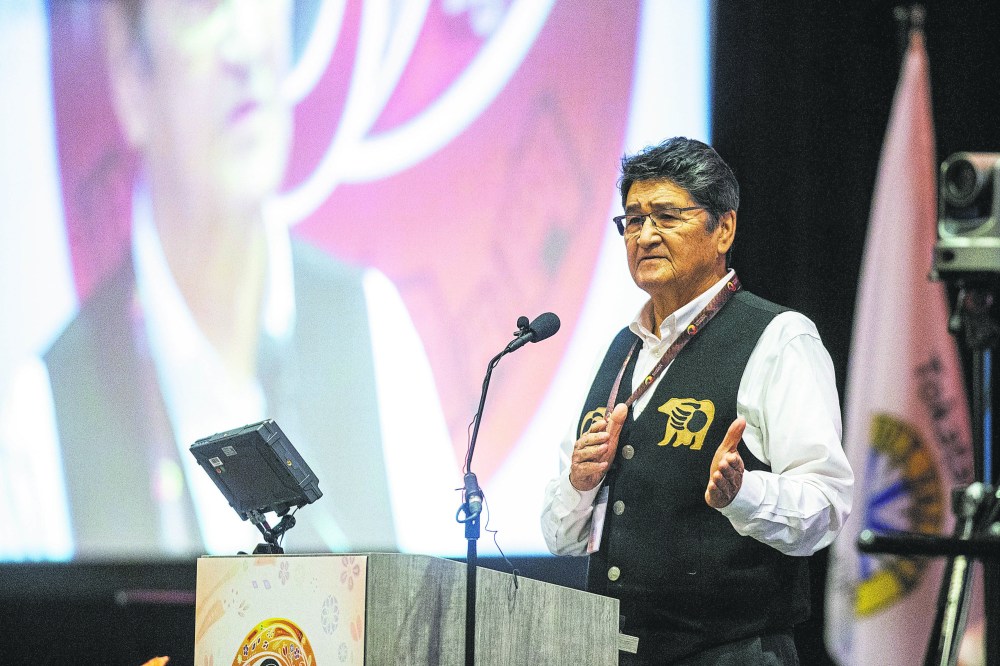Burial-site protection advocated
Advertisement
Read this article for free:
or
Already have an account? Log in here »
We need your support!
Local journalism needs your support!
As we navigate through unprecedented times, our journalists are working harder than ever to bring you the latest local updates to keep you safe and informed.
Now, more than ever, we need your support.
Starting at $15.99 plus taxes every four weeks you can access your Brandon Sun online and full access to all content as it appears on our website.
Subscribe Nowor call circulation directly at (204) 727-0527.
Your pledge helps to ensure we provide the news that matters most to your community!
To continue reading, please subscribe:
Add Brandon Sun access to your Free Press subscription for only an additional
$1 for the first 4 weeks*
*Your next subscription payment will increase by $1.00 and you will be charged $20.00 plus GST for four weeks. After four weeks, your payment will increase to $24.00 plus GST every four weeks.
Read unlimited articles for free today:
or
Already have an account? Log in here »
Hey there, time traveller!
This article was published 21/02/2024 (697 days ago), so information in it may no longer be current.
WINNIPEG — Jacquie Bouvier believes her two younger sisters are buried at the site of the former Beauval Indian residential school in Saskatchewan.
Bouvier attended the Roman Catholic Church-run school in northern Saskatchewan for six years, as did her sisters, mother and grandmother. In 2023, 93 suspected unmarked graves were identified through ground-penetrating radar at the site.
In the spring, Bouvier plans to go to there and hold a traditional ceremony to lay her sisters to rest, but she’s disturbed the site remains unprotected from desecration or development.

“They just put flags down and that was it. They’re buried in snow right now, big, big snow drifts,” she said. “(My sisters) want closure, so that’s what we’re going to do.”
Indigenous delegates, community members and advocates are meeting in Winnipeg this week to address the need for legislation to protecting ancestral burial sites across Canada.
Ovide Mercredi, the former national chief of the Assembly of First Nations, said Canada needs protections for such sites, similar to policy enacted in the U.S.
“Making sure that we find a safe place for the children that never came home, make sure that the settler society is obligated to honour that place where the children live,” he told to a crowd gathered at the three-day Protecting Our Ancestors conference.
Delegates from Canada, the U.S. and New Zealand are discussing how the law should protect Indigenous burial sites in Canada.
Mercredi said is up to the federal government to enact such laws as part of the reconciliation process.
“The harm that was done needs to be corrected by the government who harmed us,” he said.
In 1990, the U.S. passed the Native American Graves Protection and Repatriation Act, which enshrined in law the protection and return of Native American remains and sacred objects to their respective tribes.
In Canada, there are no federal laws to protect Indigenous burial grounds. Each province has different legislation for Indigenous heritage conservation, which means some provinces have less protection of sacred Indigenous sites than others.
In Manitoba, provincial laws say objects or remains that have been discovered must be reported to authorities and cannot be disturbed. If a developer happens upon such a site, the province can order the project to be paused or ended.
Kimberly Murray, the independent special interlocutor in charge of federal oversight on unmarked graves, said those rules are not always followed and often end up in a complicated court case.
“We need to find a better way, a better solution than having to go to a colonial legal system to try and stop development on lands where ancestors are buried,” she said.
Murray, who advises the federal government on a legal framework to protect unmarked graves, said the difficulty in creating such laws is some burial sites exist on institutional properties and current legislation doesn’t give First Nations access to that land.
She said the laws must include consultation with Indigenous communities.
“It’s really important that … Indigenous people have oversight to these legislations and any new legislation that we might create on a national scale,” she said. “We can’t leave it in the hands … to the government of Canada to create that law. There has to be a full consultation.”
In 2022, the federal government established an advisory committee on residential schools, missing children and unmarked burials so Indigenous communities could locate and commemorate burial sites at former residential schools.
In Manitoba, northern Grand Chief Garrison Settee said he’s confident federal legislation to protect such sites would get widespread support.
“The previous government didn’t respond to this, but I think that the new government is more acceptable, and I think they want to work with us to make sure that we move in that direction.”
» Winnipeg Free Press
